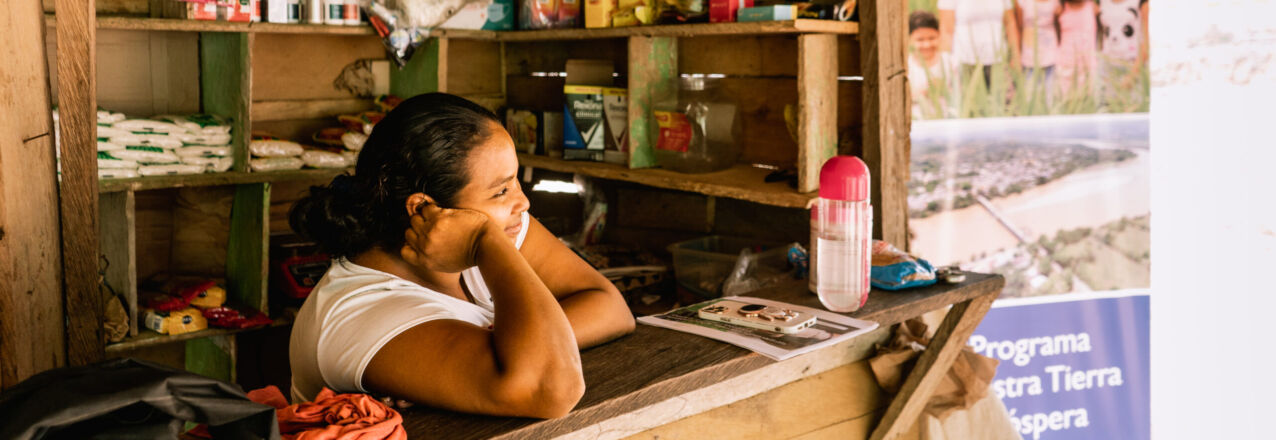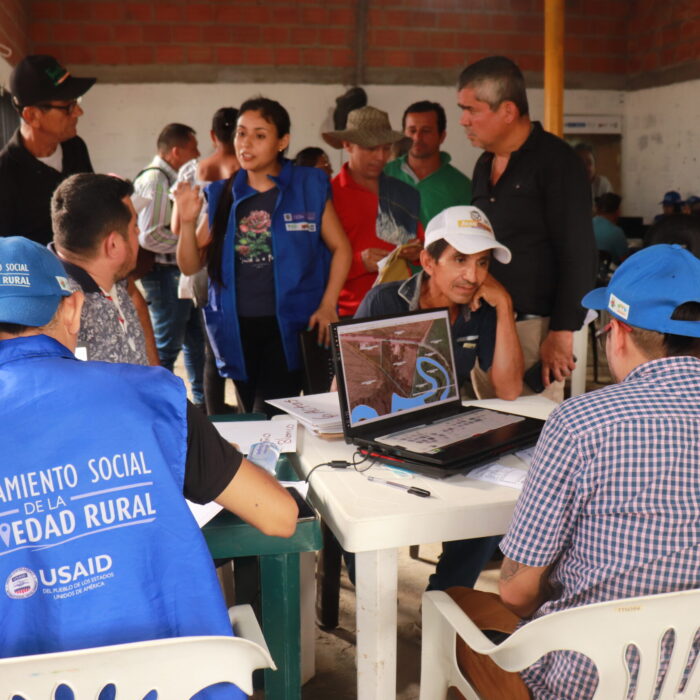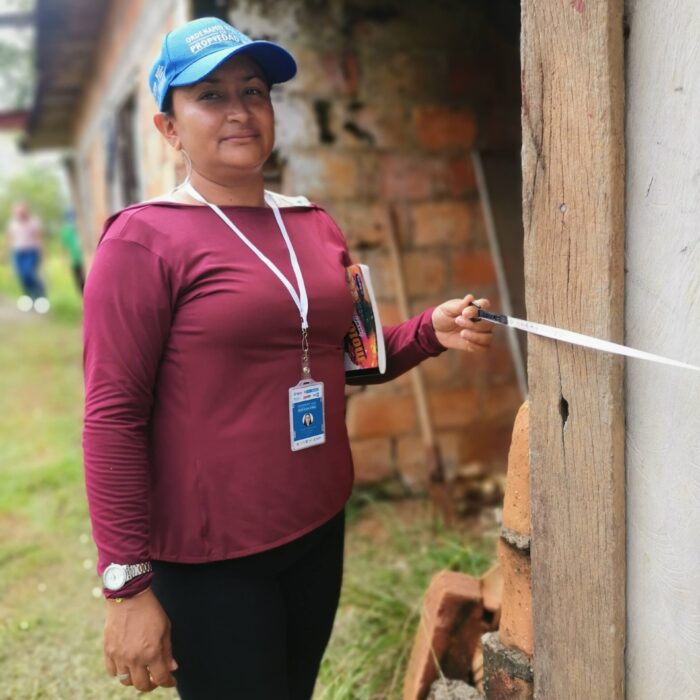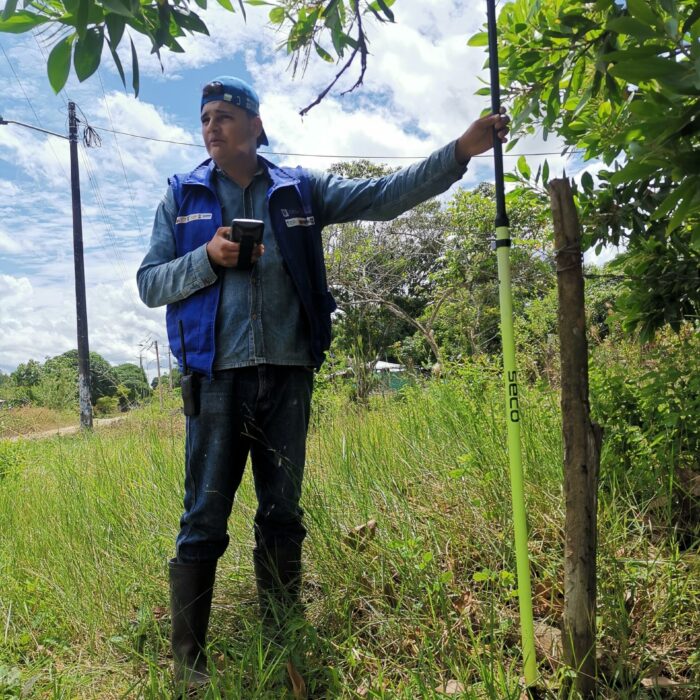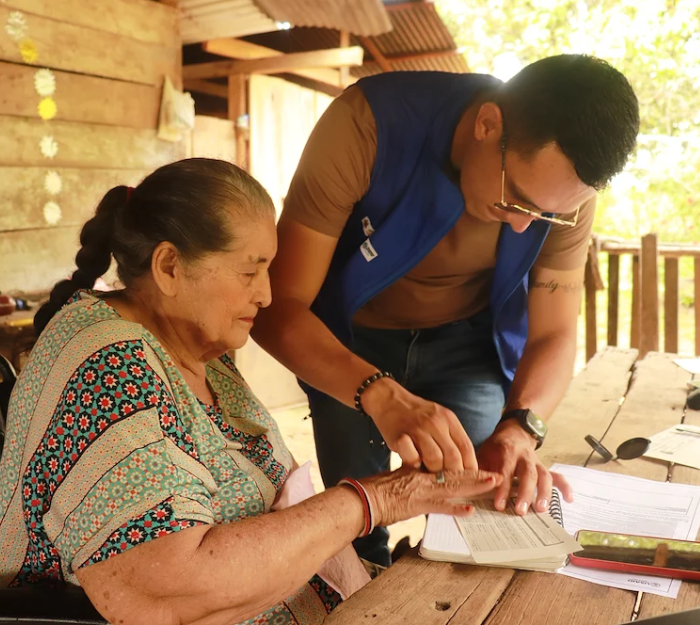With USAID support, the Colombian government has begun delivering land titles as part of a far-reaching project to transform the territory
When María Eugenia Ruiz stepped up to receive the title to her property and home, she had the chance to tell the audience about the hardships she has endured with owning land in an informal land market.
“To be honest, I have just a little house made of boards,” said Ruiz, 55. “But some time ago, a lady sent me to say, ‘Maria, don’t do anything with this house, you don’t live there, because that house is mine.'”
With relief, she said she could finally say goodbye to the permanent anguish she felt about losing the land her mother had left her and where she has lived for more than twenty years.
As she told the story of the fear and anguish she suffered, her face darkened, and without a hint of shyness she continued.
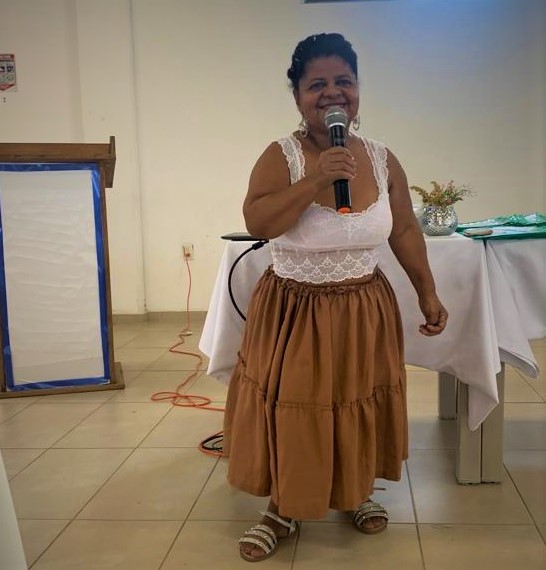
“I told her, this little house, this ranchito, is mine. It was left to me by my mother, I live here by myself, and God gives me the blessing.”
Maria certainly had reasons to be distressed. Neither she nor her mother ever obtained a deed or registered land title for the property. This year, Ruíz and 45 other families finally put their worries to rest after receiving a registered land title from the government. In February, the National Land Agency (ANT) delivered the first property titles stemming from a series of 11 USAID-supported parcel sweeps across Colombia.
In addition to the delivery of the initial 46 properties deeds, the Mayor’s Office of Cáceres received 22 property titles for schools, an important step to enable the regional government to funnel public funds to improve education services that have long been neglected. In Cáceres, an estimated seven of every ten properties lack a registered land title.
The land titles represent the first of an estimated 11,000 parcels that are being formalized under the property sweeps, a massive initiative to strengthen land tenure in Colombia by updating the rural cadaster and delivering registered property titles to their rightful owners, free of charge.
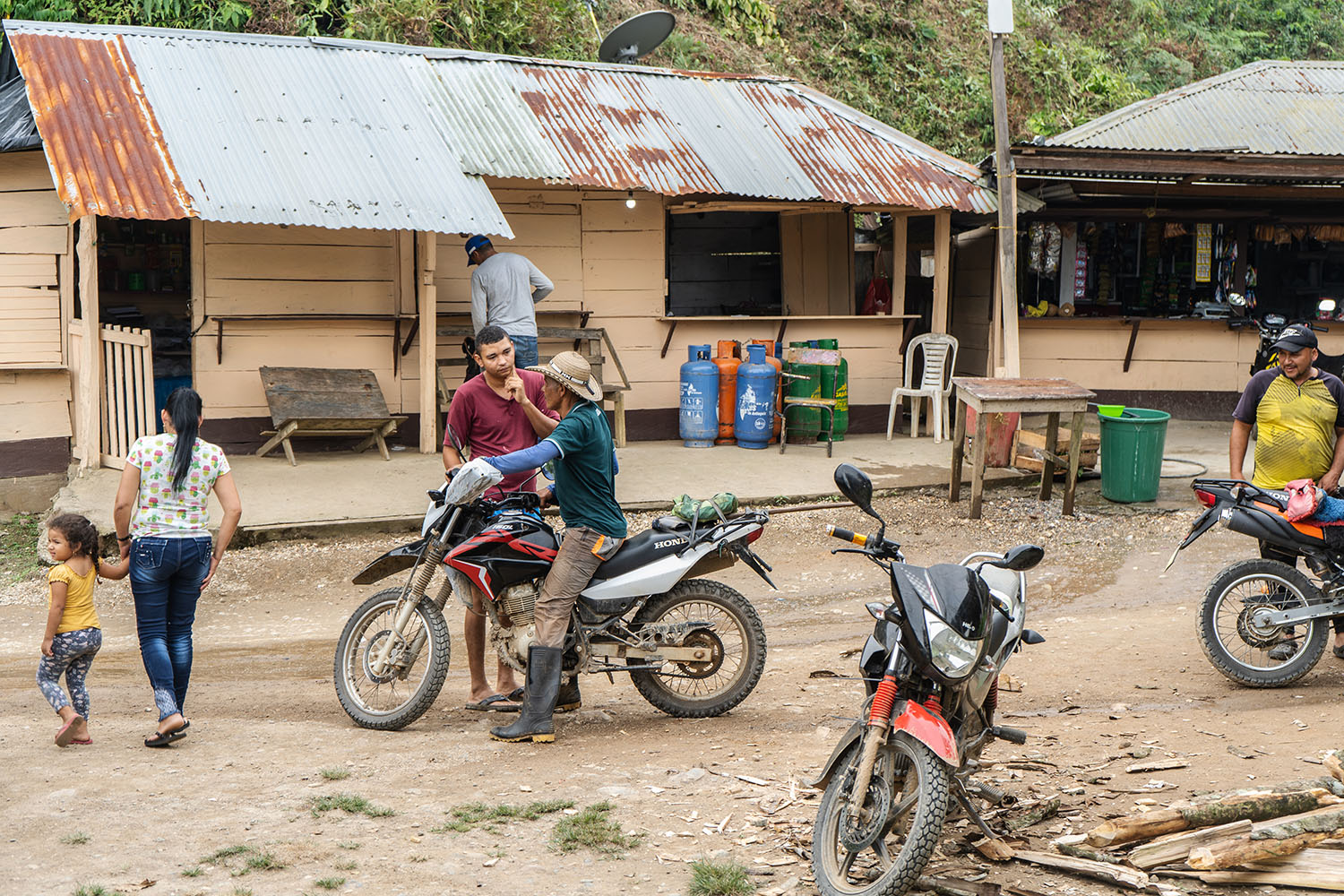

Cáceres, Antioquia has a population of 29,000 and is the largest municipality in the Bajo Cauca sub-region. Right: a typical ranchito in rural Cáceres.
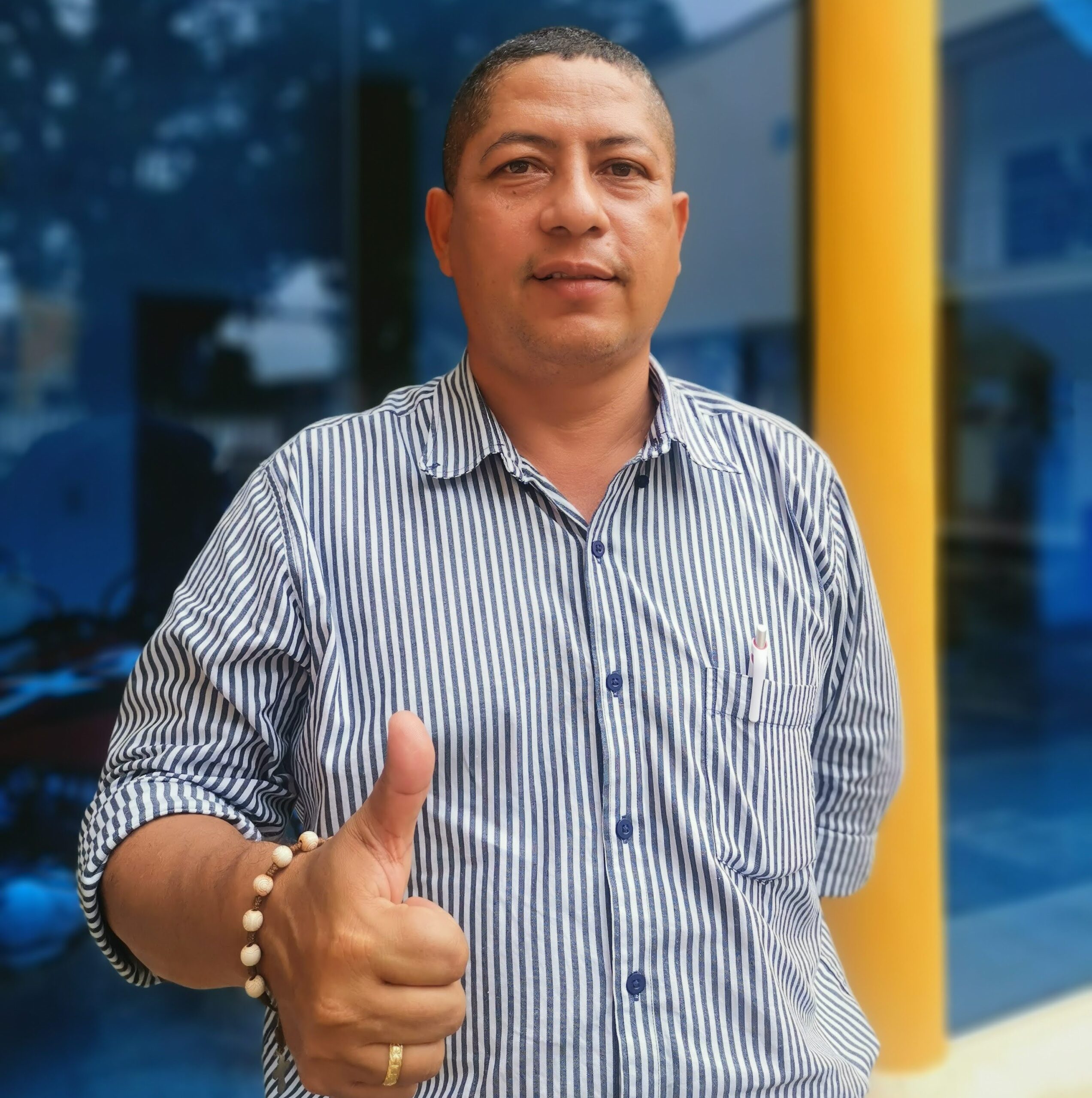
“We are happy with these property titles for our schools and for these 46 families. We are betting that the parcel sweep and improved land administration will generate well-being and equity for our people.”
-Juan Carlos Rodríguez, Mayor of Cáceres
The parcel sweep method was designed by USAID with input from Colombia’s land administration authorities such as the National Land Agency (ANT), among others. Historically, the burden of formalizing a property in rural Colombia has always been on the landowner, costing enough money and time to marginalize poor landowners. Now, government-led property sweeps involve the participation of a Municipal Land Office and social leaders who help communities resolve land conflicts.
The massive formalization of land through parcel sweeps arose from the need to comply with the first point of the 2016 Peace Accords, which seek to formalize land for rural citizens and invest in the transformation of 170 prioritized municipalities identified for being the most affected by the armed conflict.
Scenes from USAID-supported parcel sweeps around Colombia.
In order to create a functioning land market, USAID is strengthening the government’s capacity to maintain formality in future land transactions and raising awareness among communities to nurture a culture of formal land ownership. The initiative requires the participation of the government, civil society, and international development.
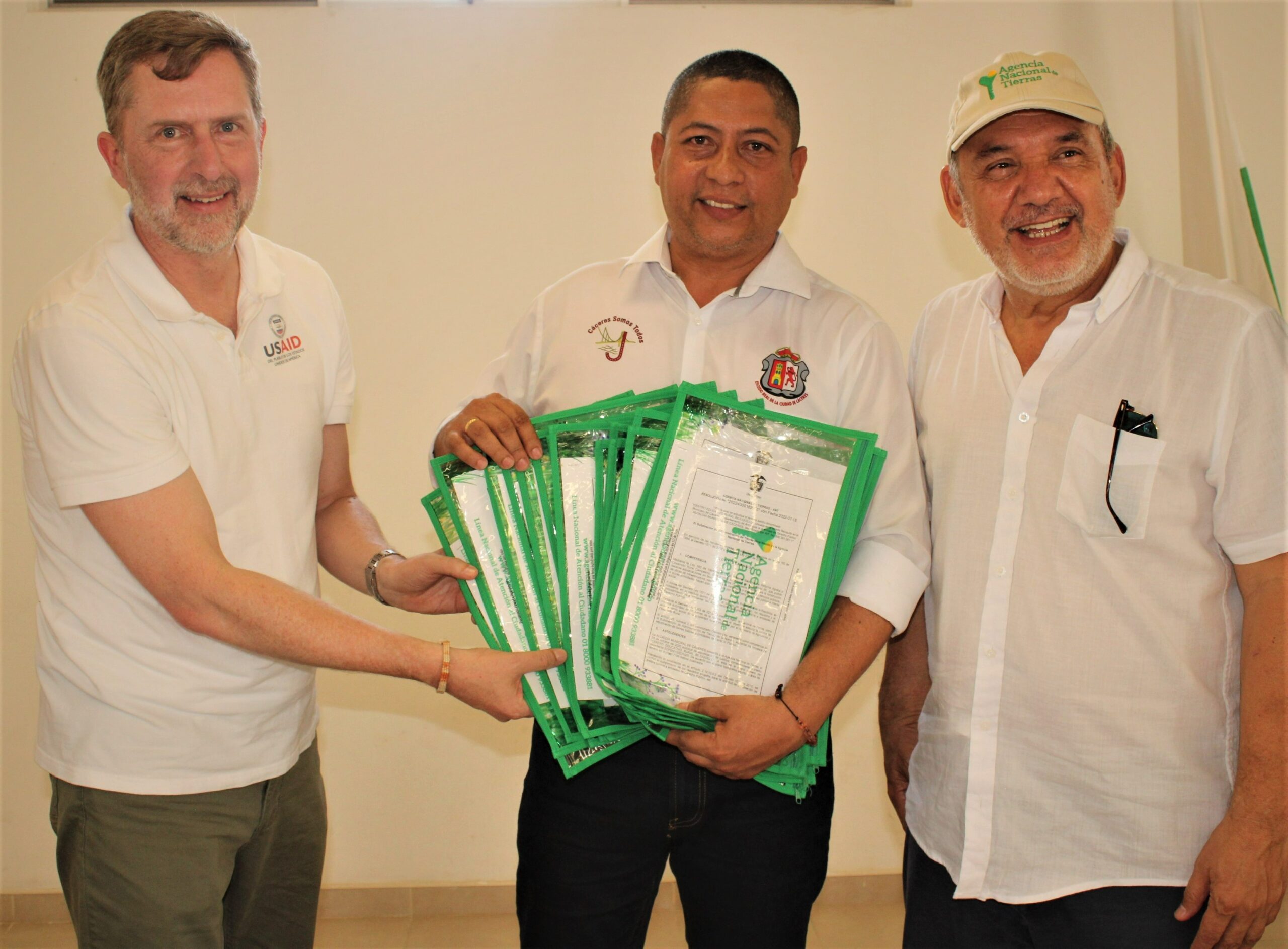
Transforming Lives
“Titling means transforming and transforming means improving the quality of life. A land title gives families certainty that this is their property. It gives them the possibility to go to a financial institution. It makes it possible for them to carry out an agricultural project on titled land.”
-Gerardo Vega, Director of the National Land Agency
3T: Titles, Transition, Transformation
Due to the massive formalization campaign, Cáceres has become the epicenter of the implementation of an innovative strategy known as the 3T Strategy, which seeks to substitute illicit crops like coca by giving landowners titles to their lands. The strategy, supported by Colombia’s Ministry of Justice in partnership with USAID, also provides families with a food assistance plan, and makes investments in agricultural and small infrastructure projects that help catalyze the transformation of rural communities.
“We cannot only think about titling, we have to go further by supporting these families with viable projects in strategic value chains and with other small infrastructure investments,” said Rodríguez, the mayor of Cáceres. “Cáceres which is a municipality that has suffered from violence and illicit crops, and we want people to feel accompanied by all our government has to offer and more.”
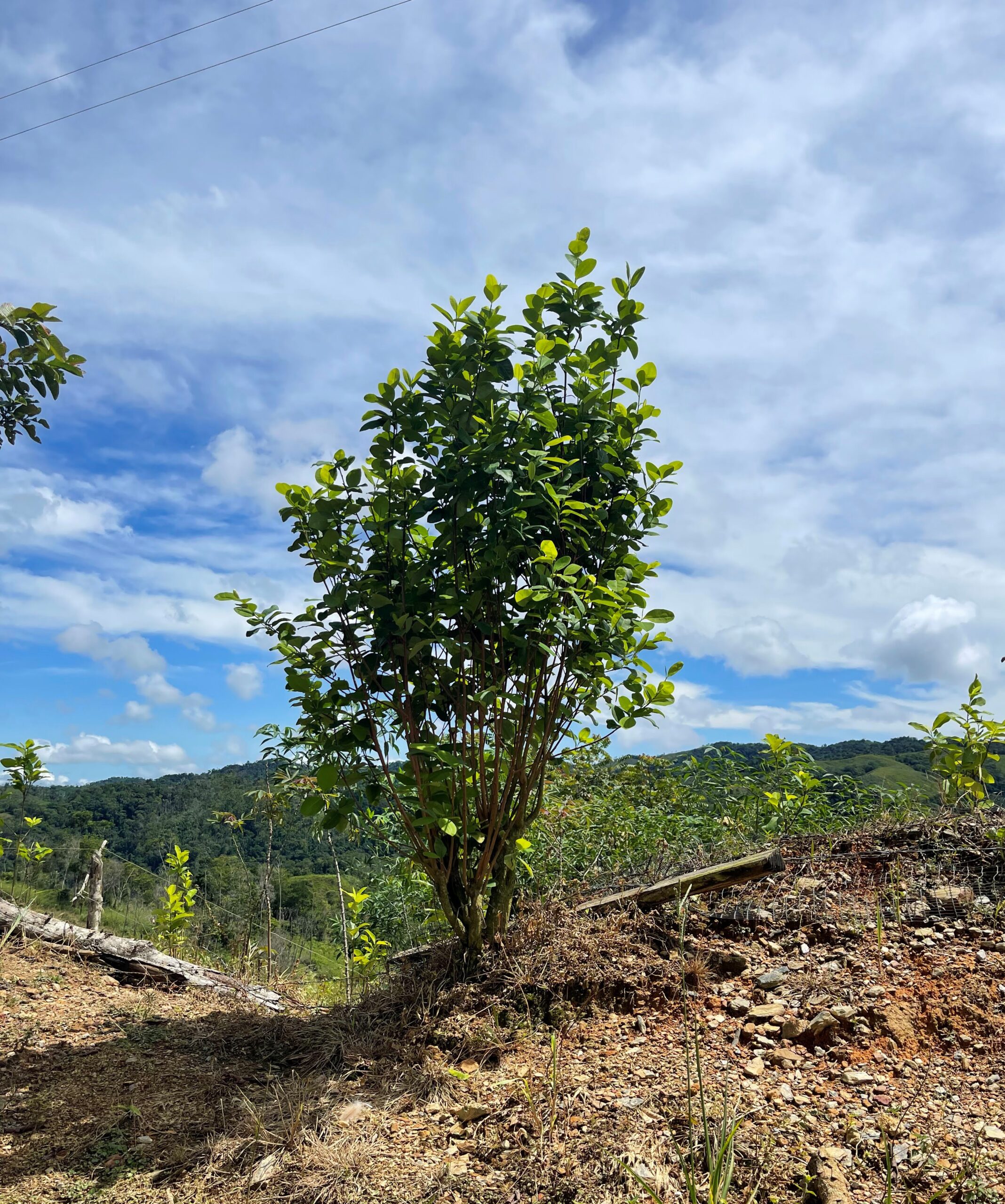
Nationally, USAID is supporting 11 land titling campaigns, six that are already under implementation and five more that are expected to start up in 2023. Each depends on a variety of factors, and it is expected that by 2025, the government will have updated more than 115,000 parcels of the national cadaster, with the potential to deliver up to 40,000 land titles.


